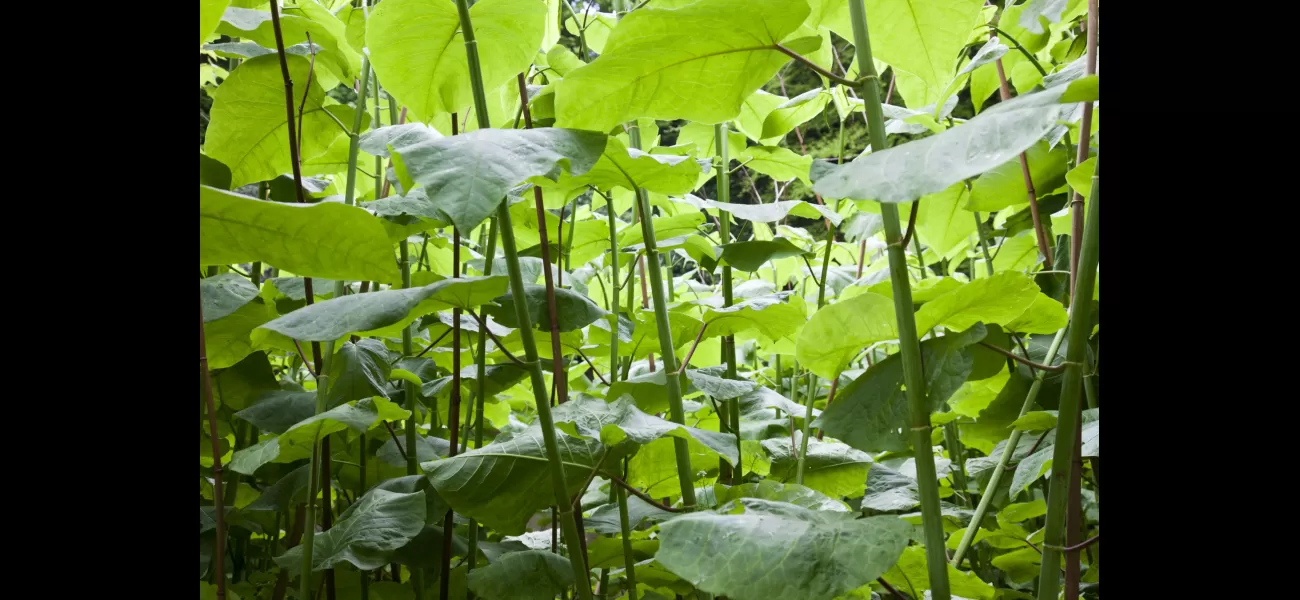Taxpayers spend £4b annually to combat Japanese knotweed and tree-killing fungus.
Invasive species have caused destruction of crops, buildings, and native plants.
July 5th 2023.

Invasive non-native species are becoming a major economic burden to the UK. According to research by the international scientific organisation Cabi, the cost of Japanese knotweed and an ash-tree killing fungus has risen from £1.7 billion in 2010 to £4 billion in 2021.
These non-native species can have a wide range of impacts, ranging from loss of crops and damaged buildings to loss of livelihoods and ecosystems. In particular, Japanese knotweed, which kills local plantlife, can cause structural damage to properties and decrease their values substantially. The fungus Hymenoscyphus fraxineus, which originated in Asia and is thought to have been brought to the UK on imported ash trees, cost around £883.5 million over the past decade, with Japanese knotweed costing £246.5 million.
Invasive rabbits, rats and mice, cockroaches, and deer are also costing the UK economy around £170 million, £123 million to forestry, and £1.1 billion to agriculture. The impact on construction, development and infrastructure was £270 million, while tourism and recreation was £136 million.
The Government has recently published its GB Invasive Non-native Species Strategy to provide a framework to minimise the risk of invasive species. According to Defra head of GB Non-Native Secretariat, Niall Moore, “It is vital that we work together with researchers, scientists and others, who are working to tackle INNS, to prevent their entry into and establishment in Great Britain and, when they do become established, to mitigate their negative impacts.”
Repeat assessments such as this one have found that despite the increasing cost of these species, there have also been decreases in some species, such as rabbits, due to effective management. The efforts of the UK’s Environment Agency have also resulted in eradicating some existing infestations of water primrose.
Dr Richard Shaw, co-author of the research and Cabi senior regional director, of Europe and the Americas, said: “This assessment again shows the important costs of INNS to the UK economy. Few effects of INNS specific management efforts can be seen in these results. However, they highlight the need to continue prevention and early detection, followed by eradication of the highest-risk species prior to establishment.”
These non-native species can have a wide range of impacts, ranging from loss of crops and damaged buildings to loss of livelihoods and ecosystems. In particular, Japanese knotweed, which kills local plantlife, can cause structural damage to properties and decrease their values substantially. The fungus Hymenoscyphus fraxineus, which originated in Asia and is thought to have been brought to the UK on imported ash trees, cost around £883.5 million over the past decade, with Japanese knotweed costing £246.5 million.
Invasive rabbits, rats and mice, cockroaches, and deer are also costing the UK economy around £170 million, £123 million to forestry, and £1.1 billion to agriculture. The impact on construction, development and infrastructure was £270 million, while tourism and recreation was £136 million.
The Government has recently published its GB Invasive Non-native Species Strategy to provide a framework to minimise the risk of invasive species. According to Defra head of GB Non-Native Secretariat, Niall Moore, “It is vital that we work together with researchers, scientists and others, who are working to tackle INNS, to prevent their entry into and establishment in Great Britain and, when they do become established, to mitigate their negative impacts.”
Repeat assessments such as this one have found that despite the increasing cost of these species, there have also been decreases in some species, such as rabbits, due to effective management. The efforts of the UK’s Environment Agency have also resulted in eradicating some existing infestations of water primrose.
Dr Richard Shaw, co-author of the research and Cabi senior regional director, of Europe and the Americas, said: “This assessment again shows the important costs of INNS to the UK economy. Few effects of INNS specific management efforts can be seen in these results. However, they highlight the need to continue prevention and early detection, followed by eradication of the highest-risk species prior to establishment.”
[This article has been trending online recently and has been generated with AI. Your feed is customized.]
[Generative AI is experimental.]
0
0
Submit Comment





